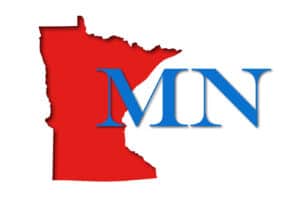The U.S. House of Representatives recently passed by a vote of 402-7 the FHA Emergency Fiscal Solvency Act of 2012 (HR 4264), a measure which would help shore up the fiscal solvency of the Federal Housing Administration’s (FHA) mortgage insurance programs. The bill, introduced by Judy Biggert (R-IL), Chair of the House Insurance, Housing and Community Opportunity Subcommittee, places a minimum on annual FHA mortgage insurance premiums and enhances FHA risk and enforcement measures to protect against fraud and abuse, among other provisions.
HR 4264 would set a minimum annual mortgage insurance premium of 0.55 percent, the current cap is set at 1.55 percent. In addition, the bill would allow FHA to charge a maximum annual premium of 2.0 percent for mortgage insurance, up from the 1.2 percent the agency now charges on most mortgages. The bill would also allow FHA to charge 2.05 percent for mortgages with a loan”“to-value ratio of 95 percent or higher.
In terms of security and risk management measures, the bill prohibits lenders with high rates of early default or insurance claims from originating or underwriting FHA-insured loans. HR 4264 also protects FHA from lender fraud, material violations, misinterpretation with regards to originations and underwriting, and requires FHA to establish a program to examine all defaults that occur within 24 months of a loan’s origination. Finally, the bill mandates that FHA seek indemnification for any early-term delinquencies that occur because a lender did not comply with FHA guidelines and requires the agency to determine an appeals process for mortgagees to appeal indemnification decisions.
HR 4264 also establishes a new position within FHA, the Deputy Assistant Secretary for Risk Management and Regulatory Affairs, which will replace the current position of Chief Risk Officer. The Deputy Assistance Secretary for Risk Management and Regulatory Affairs will be appointed by the HUD Secretary and will report to the Federal Housing Commissioner.
Finally, the bill establishes several new rules with regards to FHA’s Mutual Mortgage Insurance Fund (MMIF), which is a fund that insures mortgages made on single-family homes.
The Congressional Budget Office (CBO) originally estimated the implementation of HR 4264 to cost roughly $11 million between FY 2013 and 2017; however, as amended the bill includes an offsetting measure which would redirect $2.5 million in administrative contract expenses through 2016. What’s more, FHA estimates that these measures would lower FHA’s related capital reserve ratio to well under the 2 percent required by law. FHA’s current capital reserve ratio is 0.24 percent of the loans it covers.
HUD’s Acting FHA Commissioner, Carole Galante, subsequently released a statement in response to the House passage of HR 4264 in which she states:
“We are pleased that the bill passed by the House includes provisions that will allow FHA to continue its efforts to strengthen its enforcement capabilities in order to protect its insurance fund and American taxpayers. We look forward to continuing to work with both chambers to enact final legislation to provide FHA with the tools it needs to build on the vital reforms implemented by this Administration.”
This bill was sent to the Senate and has since been referred to the Senate Committee on Banking, Housing, and Urban Affairs.



